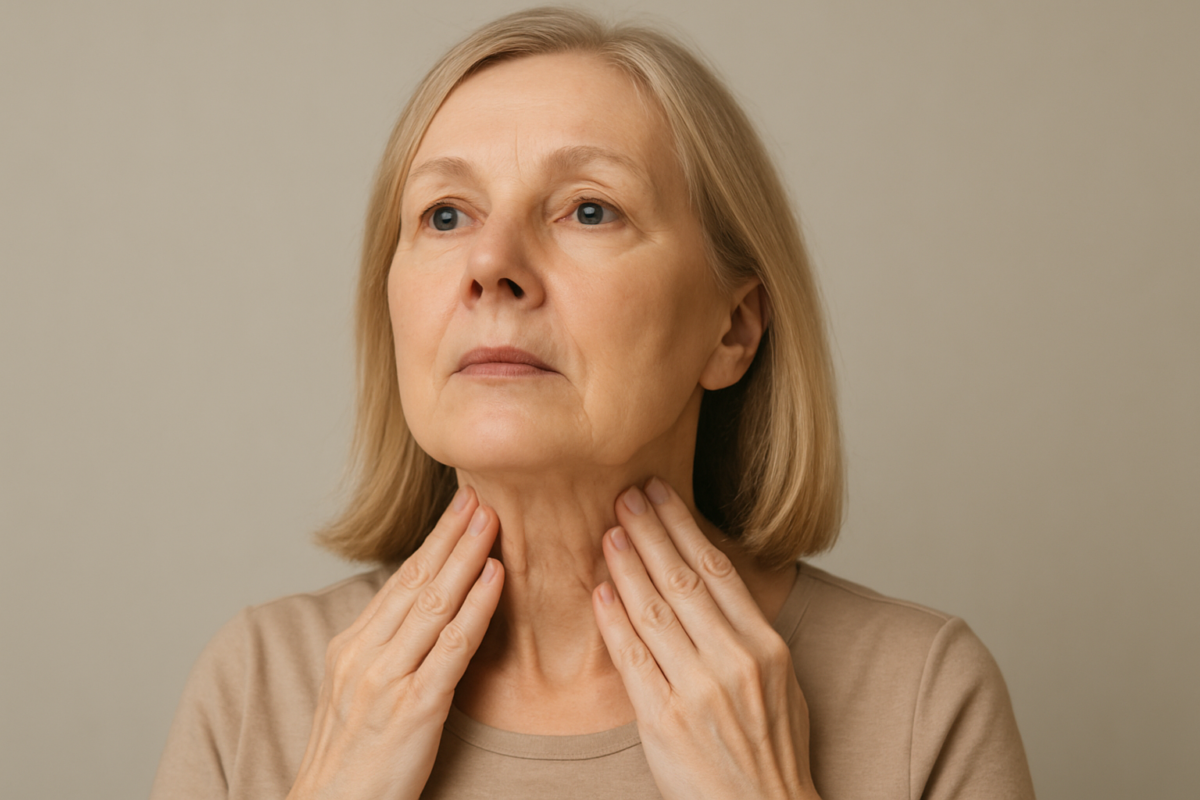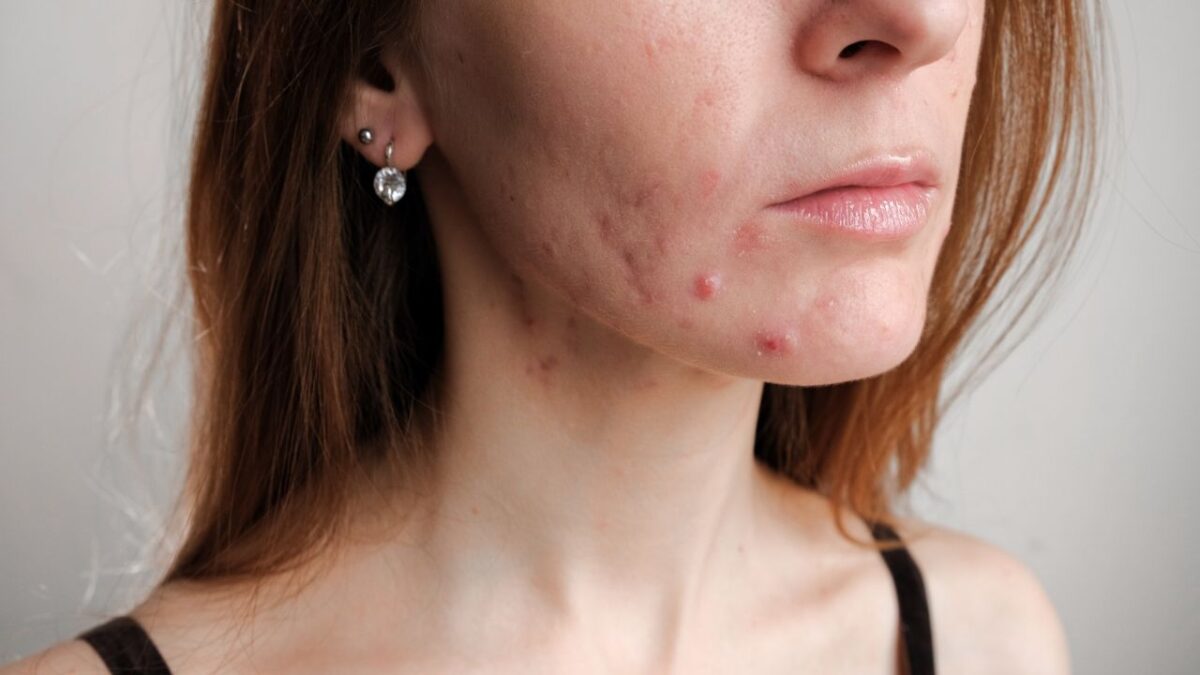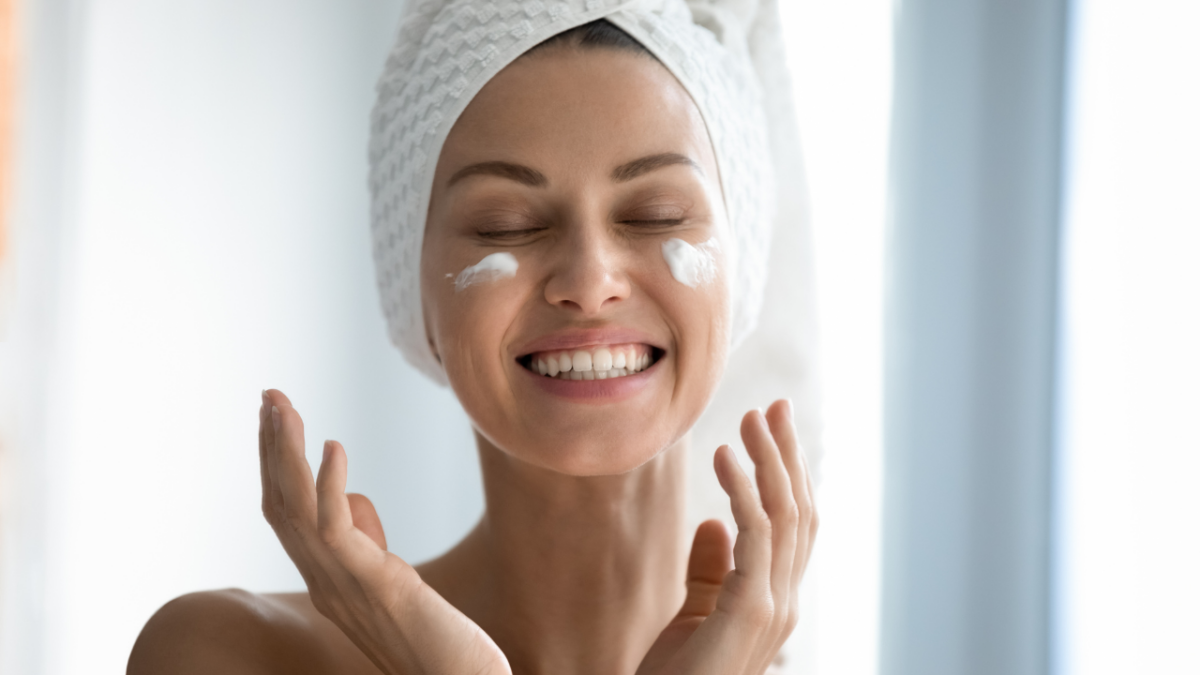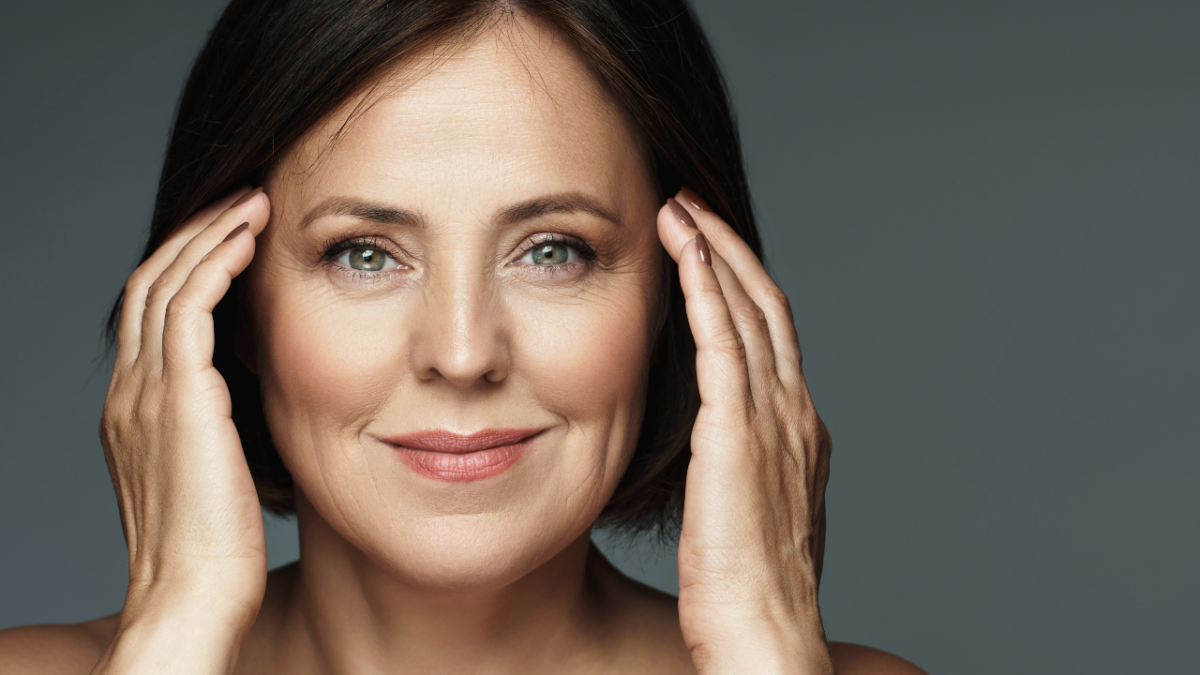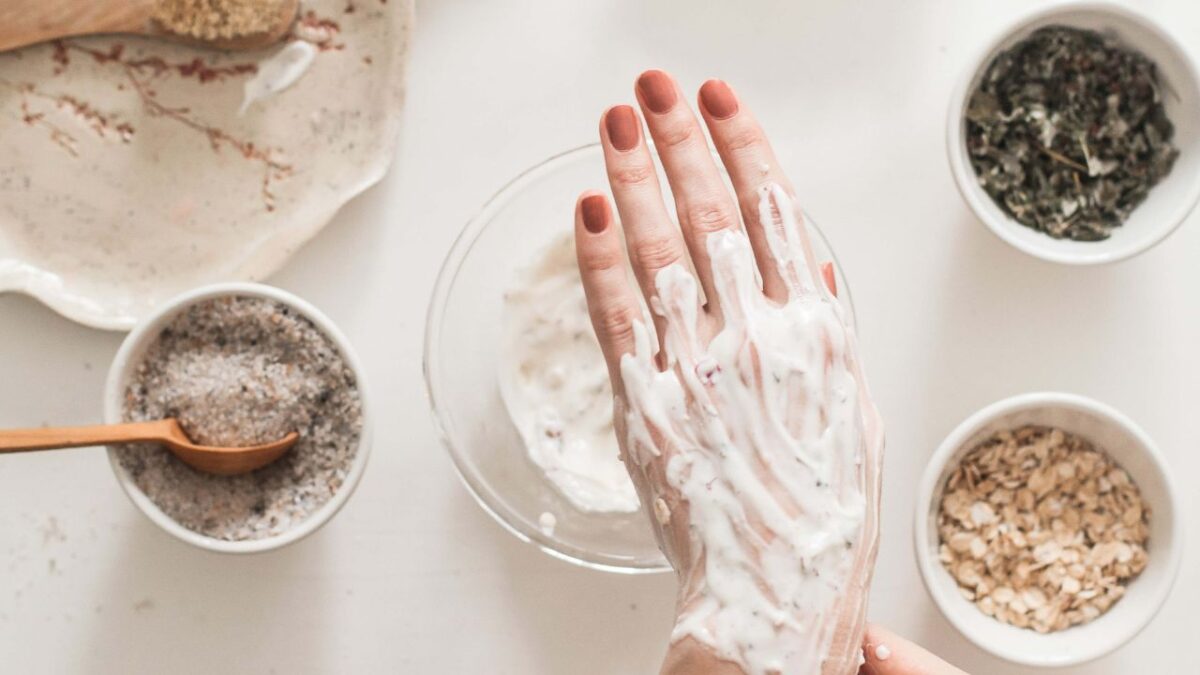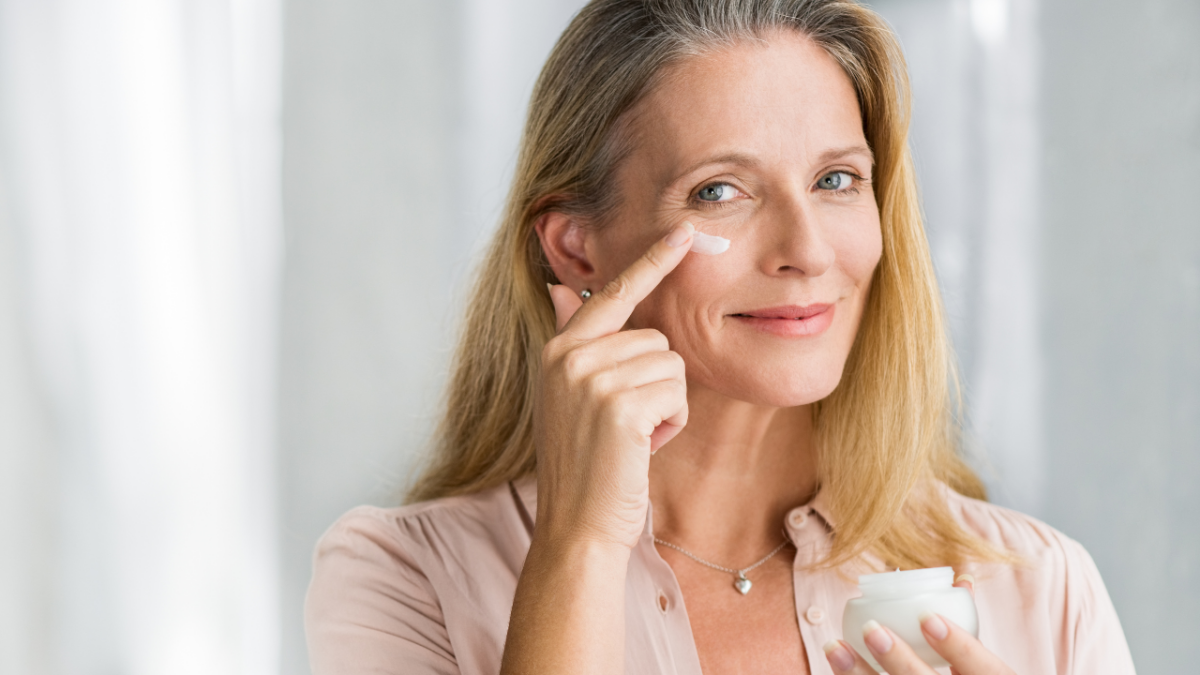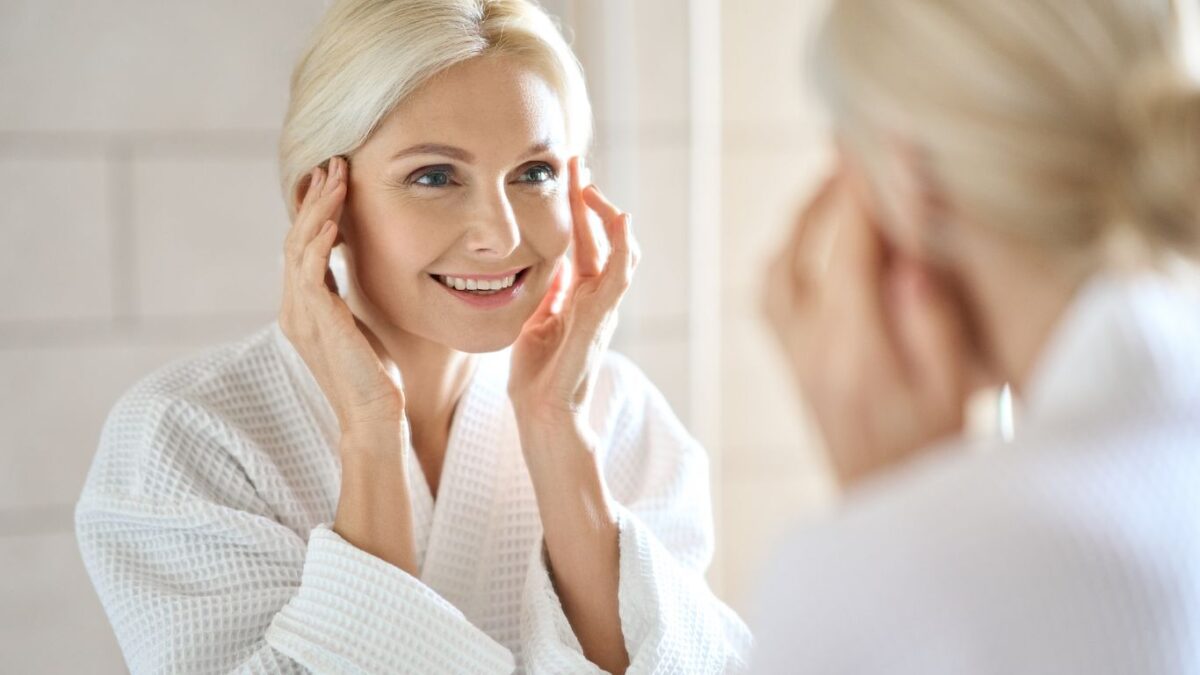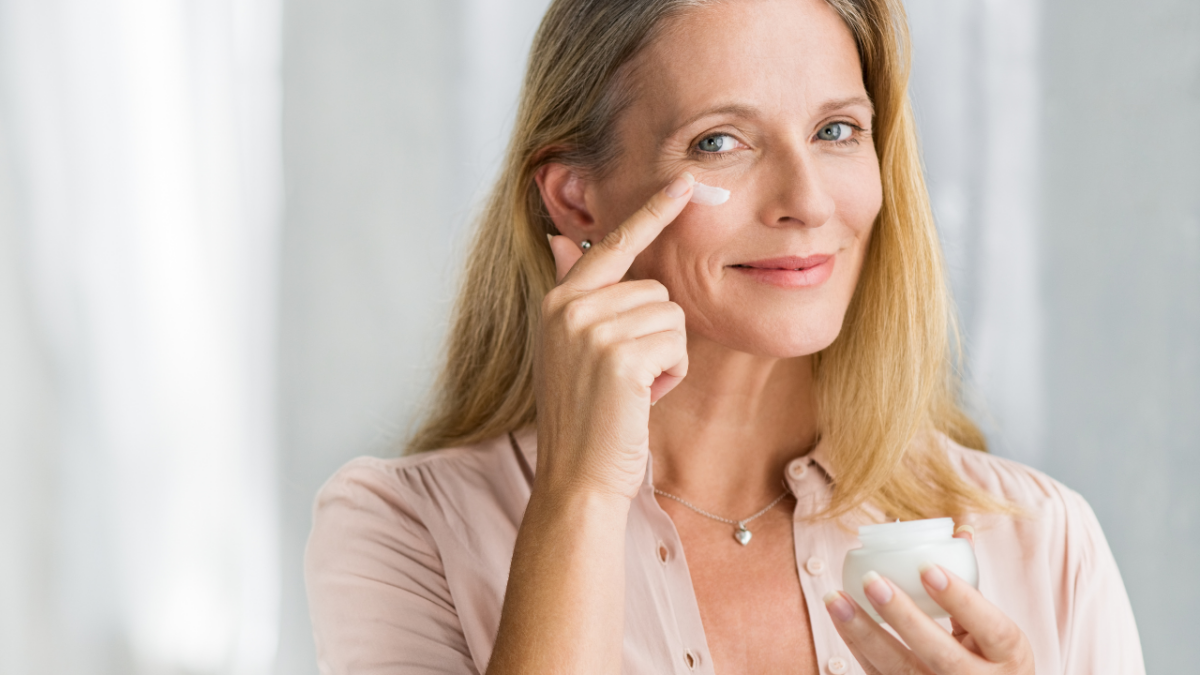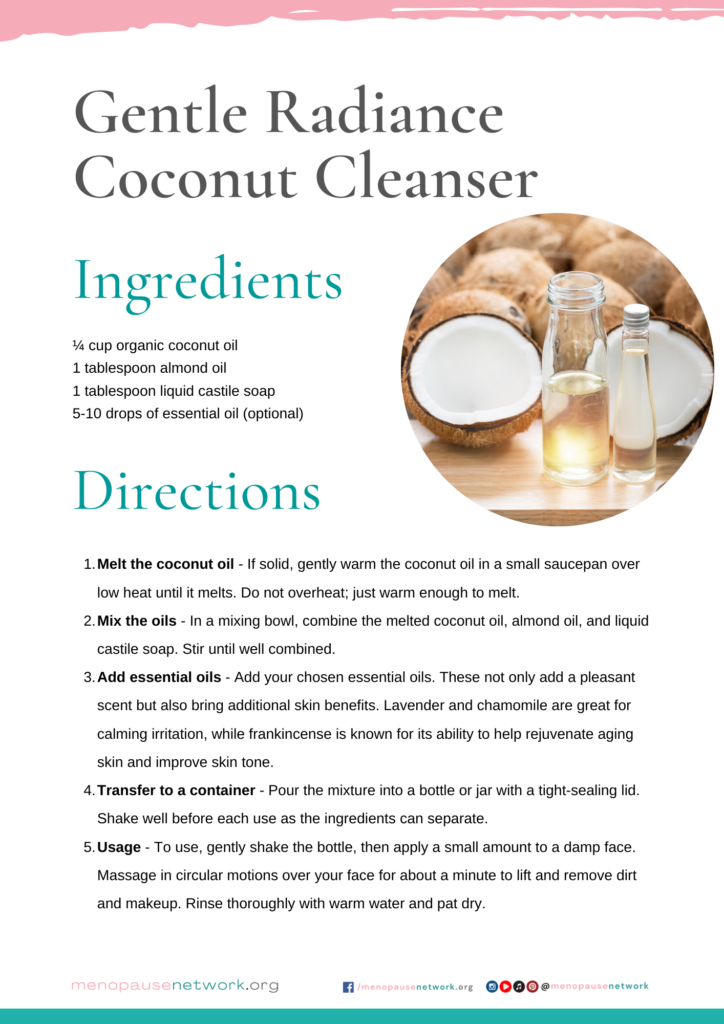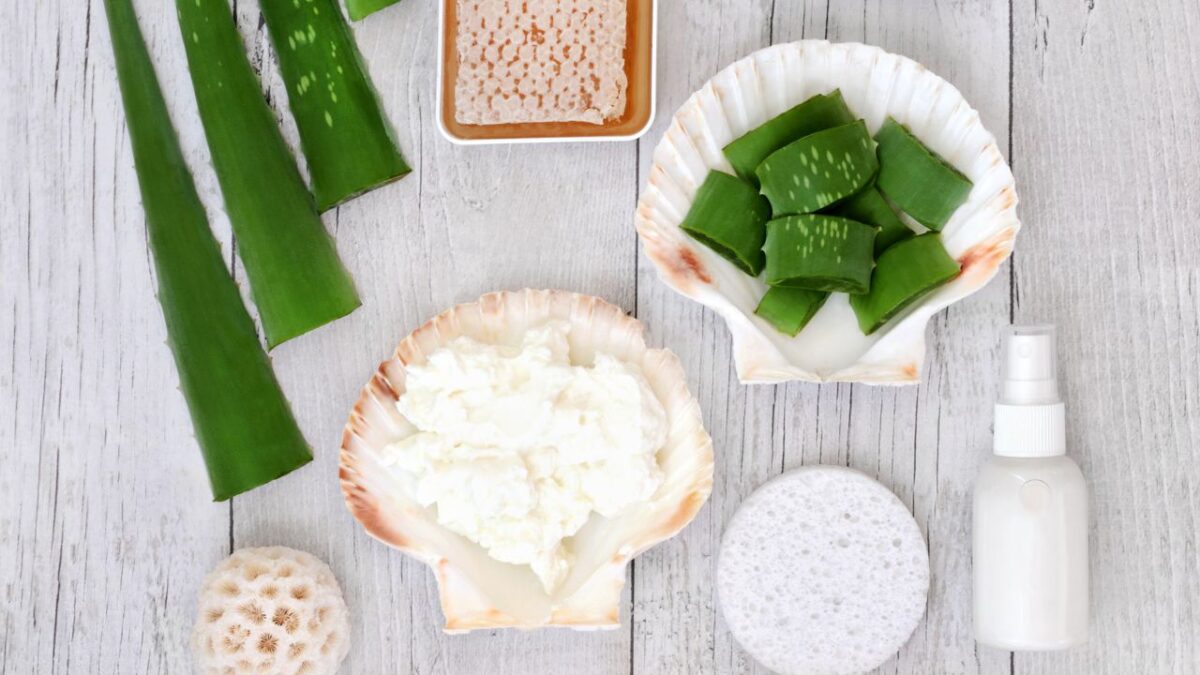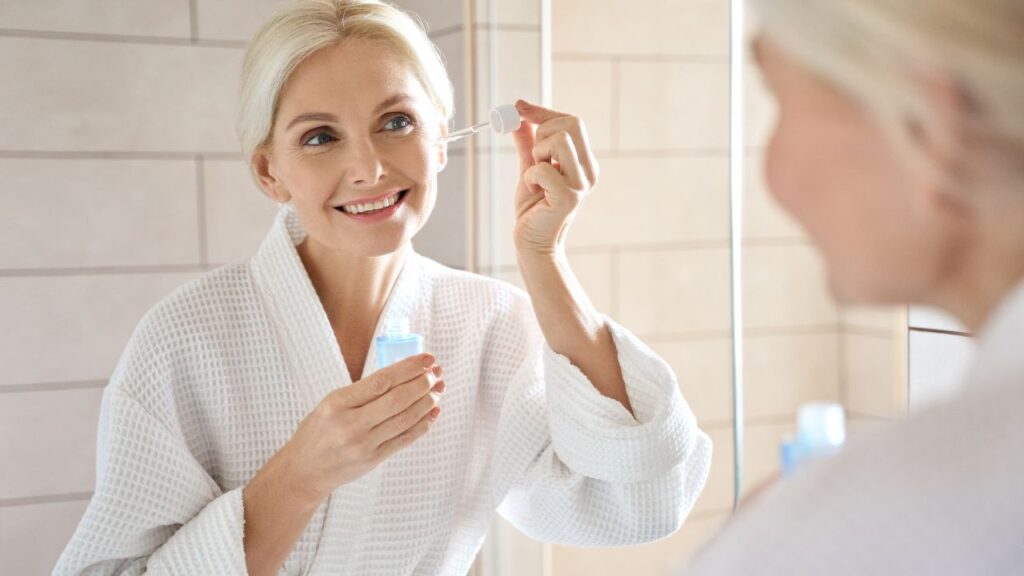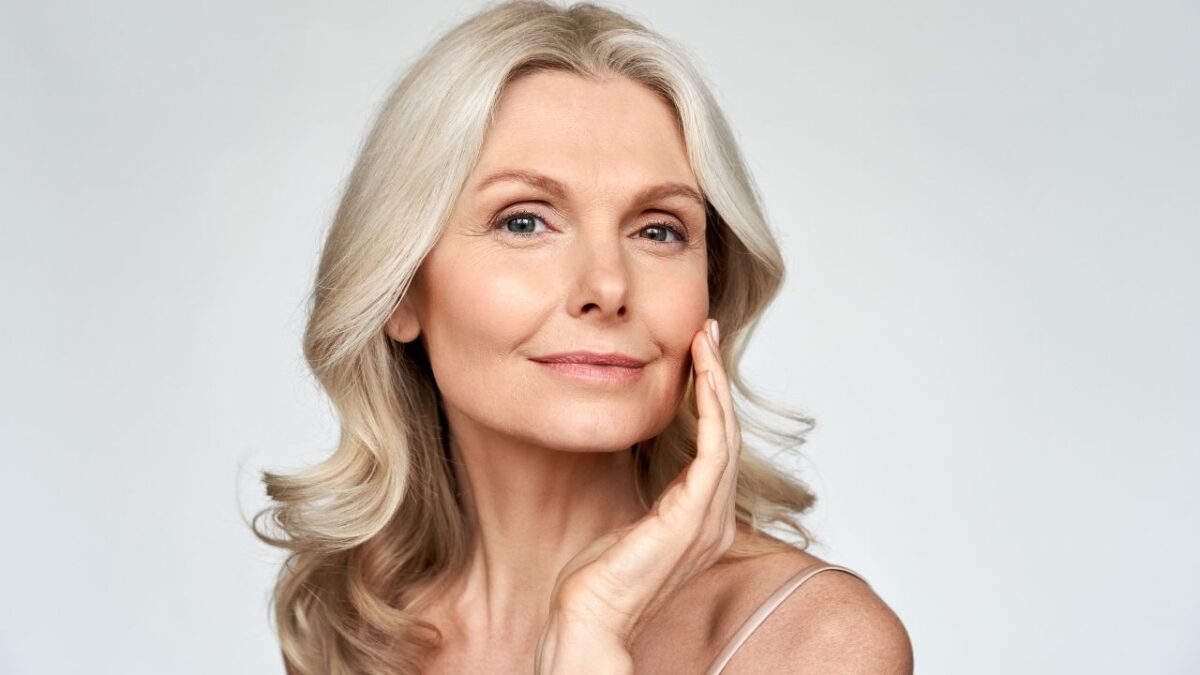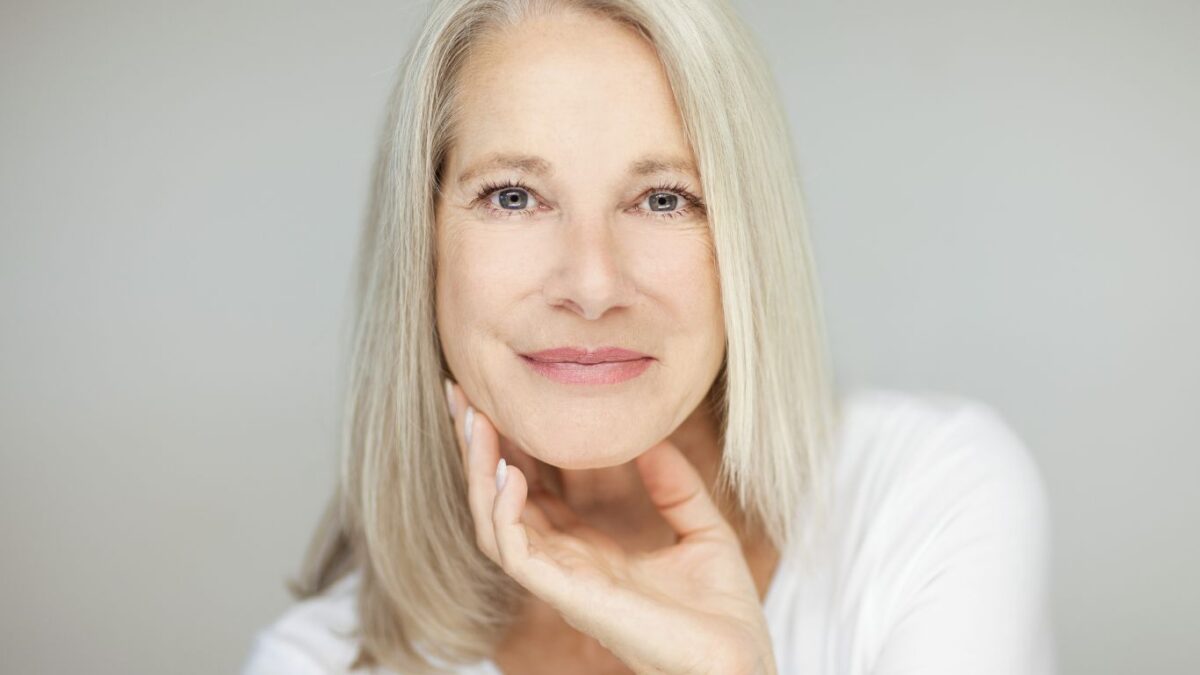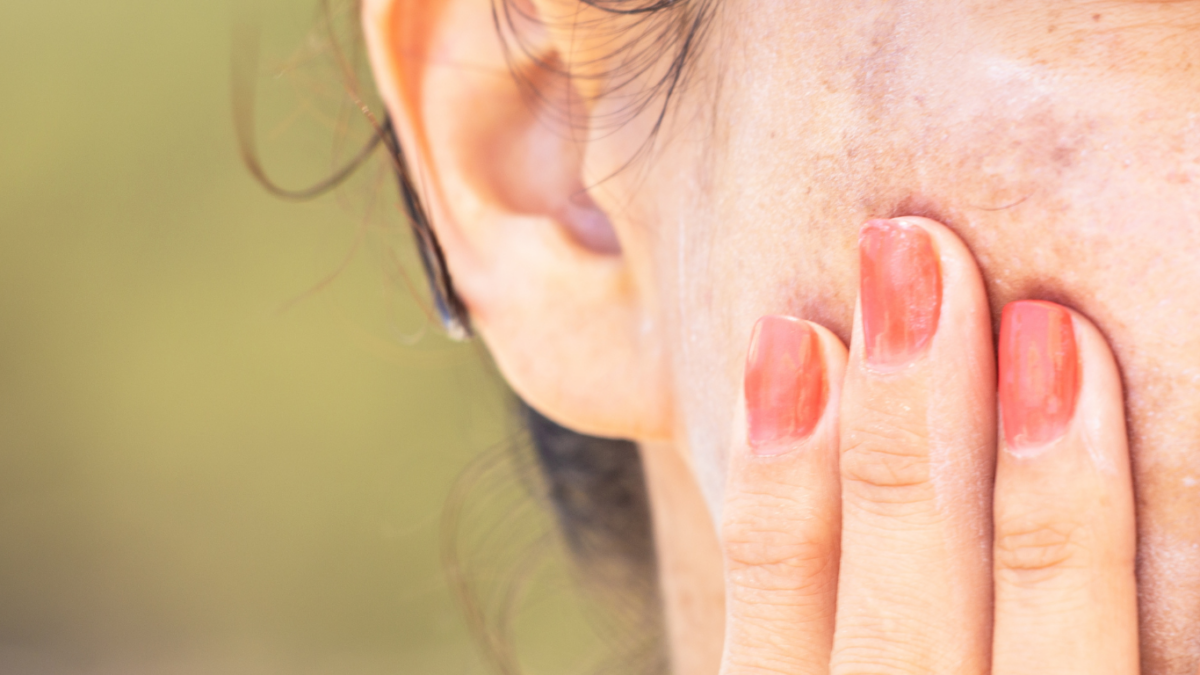This Is What Happens to Your Skin and Metabolism After 45—And How to Get Your Glow Back
You wake up and something feels different. Your jeans are tighter. Your skin looks a little dull. You’re eating the same, exercising the same—so what gives?
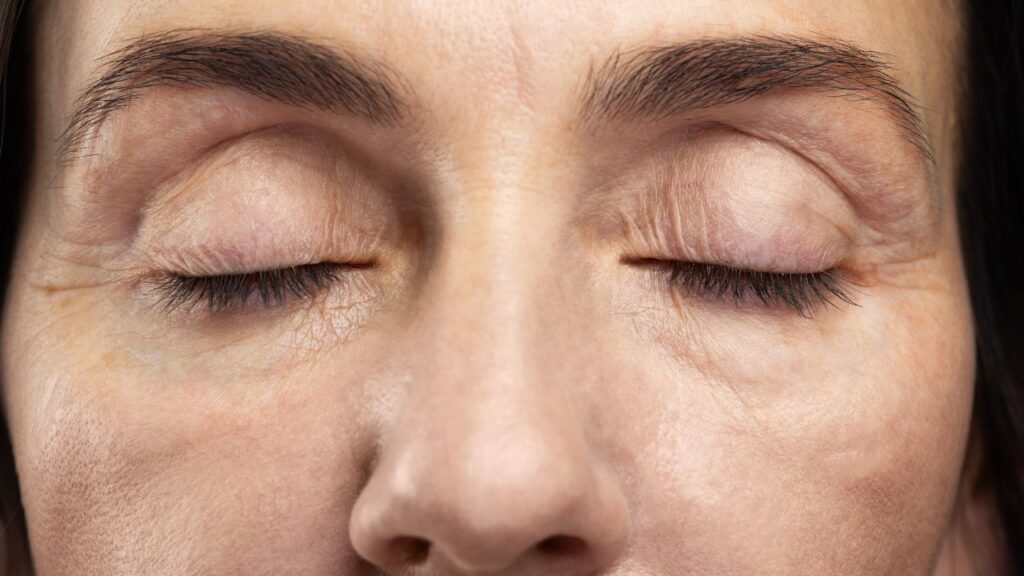
If you’re over 45 and noticing changes in your skin, weight, or energy levels, you’re not imagining it. These shifts are real. And more importantly: they’re not your fault.
This is your body moving through a powerful, natural transition—perimenopause and menopause—and the hormonal shifts underneath are rewriting how your skin looks, how your body stores fat, and how your metabolism functions.
But here’s the good news: when you understand the science behind these changes, you can take back control. You can glow again. You can feel strong, sexy, and clear-headed. This blog shows you how.
Your Hormones After 45: What’s Actually Going On
Starting in your 40s (sometimes even late 30s), your estrogen and progesterone levels begin to fluctuate. Eventually, they decline. Here’s what that means:
- Estrogen helps your skin stay plump and hydrated, supports collagen production, boosts mood, and keeps fat distribution balanced.
- Progesterone helps you sleep, calms your nervous system, and supports metabolic health.
When these drop, you may notice:
- Weight gain, especially around your belly
- Thinning, drier skin
- Mood swings or brain fog
- Sluggish metabolism
These aren’t signs of failure—they’re biochemical changes. Your body is responding to a new hormonal environment. But you’re not powerless.
Your Skin: Why It Feels Like It Aged Overnight
The Truth About Estrogen and Skin
Estrogen receptors are literally embedded in your skin. When estrogen dips:
- Collagen drops by up to 30% in the first 5 years after menopause ([Source: JAMA Dermatology])
- Skin becomes thinner and more fragile
- Hydration and elasticity decline
You might see more wrinkles, sagging, and dullness—even if your skincare routine hasn’t changed.
What You Can Do About It
1. Upgrade your skincare routine:
- Use a gentle, creamy cleanser.
- Add a hydrating serum with hyaluronic acid.
- Moisturize with ceramides and peptides.
- Use SPF daily (non-negotiable).
- Consider bakuchiol or retinol (if tolerated) to boost collagen.
2. Support your skin from within:
- Eat foods rich in omega-3s (salmon, walnuts, flaxseed).
- Prioritize protein and antioxidants.
- Sleep 7–9 hours per night—this is when skin repairs.
3. Talk to your doctor:
- Topical estrogen therapy may help rejuvenate skin (prescription only).
Why You Might Be Gaining Weight (Even if You’re Doing Everything “Right”)
The Estrogen-Metabolism Connection
Estrogen helps regulate:
- Insulin sensitivity (how your body handles sugar)
- Fat storage
- Muscle mass
When it declines:
- You become more insulin resistant
- Fat shifts to your abdomen
- Muscle mass declines (which slows metabolism even more)
What You Can Do
1. Strength train 2–3x/week:
- Builds lean muscle
- Boosts metabolism
- Improves insulin sensitivity
2. Prioritize protein at every meal:
- Aim for 20–30 grams per meal
- Helps preserve muscle and keeps you full
3. Balance carbs and fats:
- Focus on whole carbs (veggies, legumes, whole grains)
- Add healthy fats (avocado, nuts, olive oil)
4. Reduce stress:
- High cortisol = more fat storage and muscle breakdown
- Use breathwork, walking, journaling, or nature to reset
5. Sleep is non-negotiable:
- Less sleep = more cravings and worse insulin response
The Brain Fog, Mood Swings, and “Flatness”
Hormones don’t just affect your body—they shape your brain chemistry too.
- Less estrogen = less serotonin and dopamine
- Cortisol rises, making anxiety and low mood worse
Strategies that help:
- Omega-3s for brain health
- Magnesium glycinate for calming
- Rhodiola or ashwagandha (adaptogens)
- Social connection (oxytocin boost!)
- Mind-body practices: yoga, tai chi, meditation
Your Glow-Back Game Plan
Daily Routine for Radiance
Morning:
- Wake and hydrate (water + lemon)
- Gentle movement or walk
- Protein-packed breakfast (e.g. eggs + greens + avocado)
- Skincare: Cleanse + serum + moisturizer + SPF
Midday:
- Strength workout or brisk walk
- Protein-rich lunch + colorful veggies
- Deep breathing break or gratitude journaling
Evening:
- Light, early dinner with protein and healthy fat
- Skincare wind-down (cleanse, nourish, hydrate)
- Screen-free time + herbal tea
- In bed by 10 p.m.
You’re Not Broken. You’re Evolving.
You are not the problem. Your hormones are changing—but now you have the power to support your body in a new way.
This isn’t about “anti-aging.”
This is about pro-vitality. Pro-energy. Pro-you.
Share this with your girlfriends. Let them know they’re not alone. Let’s change the conversation about menopause and help each other glow through the years ahead.
Please remember: This information is for educational purposes only and is not intended to replace professional medical advice, diagnosis, or treatment. Always consult with your healthcare provider before making any changes to your health routine, especially if you have existing health conditions or are taking medications. What works for one person may not work for another, and your individual health needs are unique to you.
References:
- Brincat, M., et al. (2005). Effects of estrogen deficiency on skin collagen. Journal of the American Academy of Dermatology, S0190‑9622(04)02220‑0. Most studies suggest postmenopausal collagen declines at approximately 1–2% per year Readability+8JAAD+8ScienceDirect+8.
- Self. (2023, December 15). Exactly how your skin changes in your 40s, 50s, and 60s. Self. Collagen drops ~1% per year with accelerated decline (~30%) during first five years post-menopause SELF.
- WelleCo. (n.d.). The menopause effect: How collagen loss can speed up skin aging—and what we can do about it. Up to 30% collagen loss in first five years post-menopause; decline continues at 1–2% annually menohello.com+6WelleCo US+6NBI+6.
- Dolgen, E. (2024, October 14). Hormone therapy and insulin resistance: Key insights from the 2024 Menopause Society meeting. MENOPAUSE MONDAYS® Blog. Reports fresh insights that HT can improve insulin resistance managedhealthcareexecutive.com+8ellendolgen.com+8medicaldialogues.in+8.
- Menopause Society. (2024, September). New meta-analysis shows that hormone therapy can significantly reduce insulin resistance. Menopause.org. Meta-analysis covering >29,000 participants across 17 randomized controlled trials showing hormone therapy’s benefit on insulin resistance ellendolgen.com+8menopause.org+8eurekalert.org+8.
- JAMA Network. (n.d.). Induction of collagen by estradiol. JAMA Dermatology. Topical estradiol applied for two weeks stimulated collagen production in sun-protected skin of postmenopausal women jamanetwork.com+1.
- Wikipedia contributors. (2025, August). Estradiol. In Wikipedia. Estrogen and progesterone receptors in skin; decreased estrogen post-menopause leads to thinning, wrinkling, loss of elasticity, dryness; HRT improves skin collagen, thickness, hydration, elasticity Wikipedia+1.

